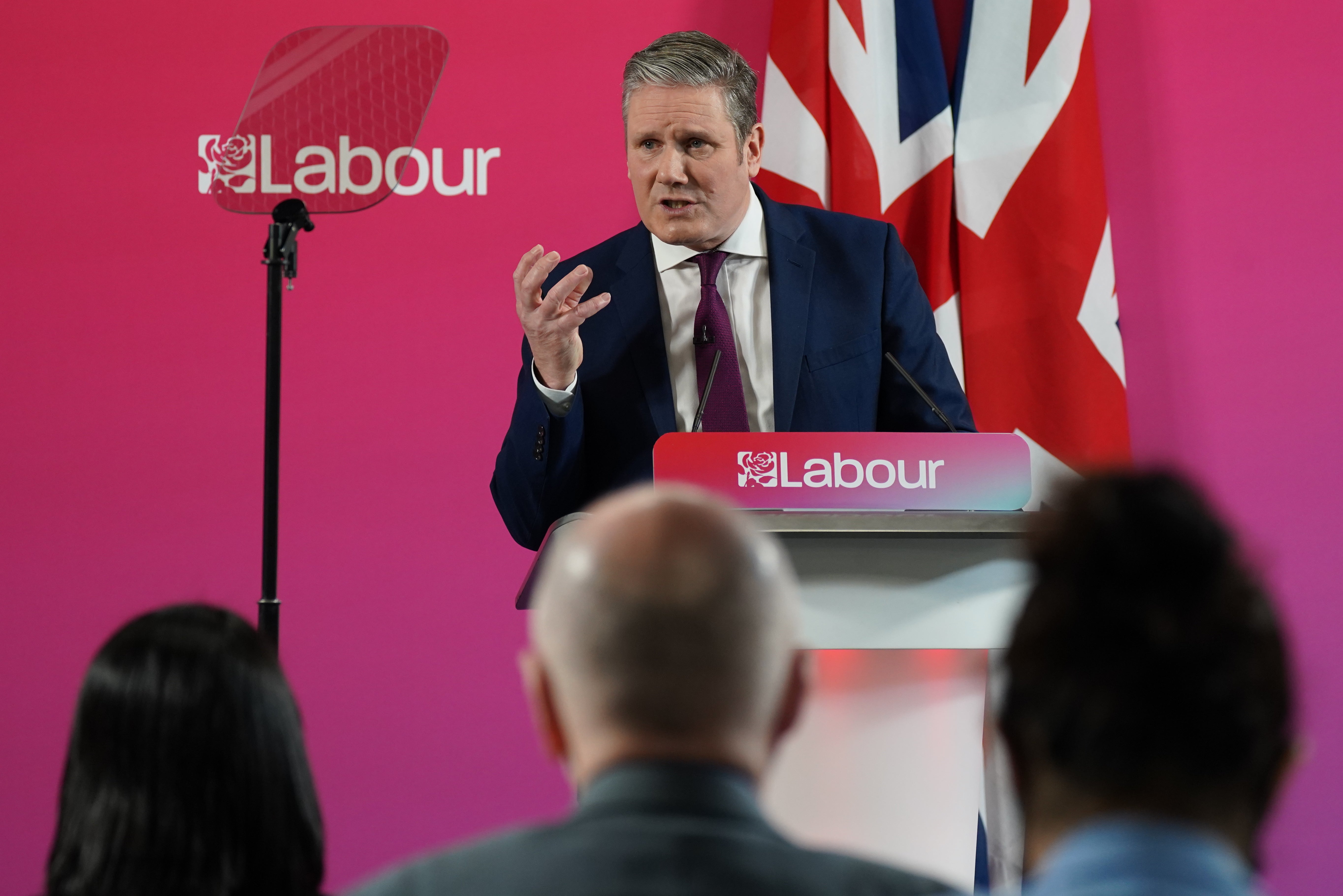A slogan so boring not even Starmer could remember it – but it is right
The Labour leader appeared to forget his own three-word list, but it is a useful guide to Labour’s road ahead, writes John Rentoul


The three-word slogan that was advertised in advance of Keir Starmer’s speech was so featureless that people were bound to struggle to remember it. Inevitably, it was the leader himself who in answer to journalists’ questions afterwards tried to repeat the values he had listed in the speech: “Security, prosperity and…” He paused, took a drink of water, and went on: “... and respect.”
He got there in the end, but a list of abstract nouns with no alliteration or rhyme to connect them is never going to stick in anybody’s mind, not even in the mind of the person who has just delivered a speech built around those three themes.
It was, furthermore, a lightweight speech, devoid of much content or argument, and although the delivery was more relaxed and fluent than usual, it was hardly oratory. It had its clunking moments: “‘Making Brexit Work’ is painstaking work, and slogans won’t cut it.” But even Tony Blair once said “now is not a time for soundbites” before ending that sentence with “the hand of history is on our shoulder”, and I think Starmer’s was an important speech that could set the tone for Labour.
The idea of an explicit contract between a leader and the people is one that has long gone down well in focus groups. I first came across it in Newt Gingrich’s Contract with America in the 1994 midterm elections in the US. Advised by Frank Luntz, the pollster, Gingrich, the leader of the Republicans in the House of Representatives, came up with his contract as a way of countering low levels of trust in politicians. The Republicans did well in the midterm elections, but then were trounced by Bill Clinton, re-elected as president two years later.
Nevertheless, the idea was copied by Tony Blair. Not only did he have a five-point pledge card – “keep this card and see that we keep our promises” – but on the eve of the 1997 election, he had a “performance contract” consisting of 10 vows, which he also described as his “covenant with the British people”, written out by hand in the garden of his Islington home for the TV cameras. “Judge me upon it,” he said. “The buck stops here.”
Well, now the buck stops with Starmer, who even had a light aside about a contract drawn up by a politician well known for being a lawyer: “You are probably expecting a thousand clauses, seven appendices and a list of definitions – well, my contract won’t be anything like that.”
Indeed, as he set it out, the “Contract with the British People” starts with a preamble about decency and standards in public life and contains just those three unmemorable points: security, prosperity and respect.
It would be easy to dismiss the contract as a derivative idea, politics by numbers, and largely content-free, but it could yet be important.
There was nothing platitudinous, for example, in Starmer schooling his predecessor in the achievements of the “titans of 1945”, who created the NHS but who also belonged to “a patriotic government which understood the importance of national defence, which created Nato, the alliance that has preserved the peace in Europe ever since, and gave this country its independent nuclear deterrent”.
There was nothing vacuous about listing Attlee, Wilson and Blair as the authors of change: “This is the tradition we embrace and the mission we inherit.”
When he was asked afterwards – by The Independent’s own Andrew Woodcock – why he hadn’t included Jeremy Corbyn in that list, he said: “I mentioned Attlee, Wilson and Blair because they all won. I want to be fourth in that list.”
Nor was there anything bland about the policies that Starmer offered when journalists asked for examples of what his speech actually meant in practice. He said Labour had distinctive policies on housing, including that “foreign buyers should not be allowed to buy homes ahead of first-time buyers”. That is “patriotic” in a way that makes a nonsense of the distinction Starmer pretended to make in the speech between patriotism and nationalism.
To keep up to speed with all the latest opinions and comment sign up to our free weekly Voices Dispatches newsletter by clicking here
The significance of the speech is that the idea of the contract will be used as a foundation for Labour’s communications between now and the next election. The three words are not going to set the world alight: they are not even a slogan, just a list. But they will act as an internal discipline for the party.
Any frontbencher or activist now has ready-made themes to fall back on. “Security” reminds them that Labour will no longer give ground to the Conservatives on defence. It also serves as an economic message linked to “prosperity”, which in turn is the Starmerite equivalent of James Carville’s message on the 1992 Clinton war room whiteboard: “The economy, stupid.”
And “respect” is a vital coded message intended for Leave voters who feel patronised by the Labour Remainer elite. Now all the Labour Party has to do is try to remember them.
Join our commenting forum
Join thought-provoking conversations, follow other Independent readers and see their replies
Comments
Bookmark popover
Removed from bookmarks